Oracle Salary Negotiation - How to Negotiate an Oracle Job Offer
Securing an Oracle job offer is a huge accomplishment in and of itself—regardless of your specific role. From product management to software engineering, receiving the opportunity to work for one of the largest software companies in the world is definitely something worth celebrating.
However, before you get too ahead of yourself and respond to your Oracle job offer letter, there’s still one crucial step left in the interview and recruitment process: negotiating Oracle salary.
As a leading global technology company, Oracle is able to provide its employees with competitive compensation packages. However, this in no way means you shouldn’t negotiate your offer.
In fact, Oracle salaries are negotiated all the time—and we’ve witnessed this success firsthand.
Over the years, our clients have used our negotiation strategies to secure significantly improved pay packages at Oracle, and we’re here to share these insights and tips with you.
Whether you’ve negotiated a job offer before or are totally new to the idea, we will guide you through every step in the process. In the following article, we will walk you through exactly how to prepare for and execute your Oracle salary negotiation with confidence.
Want to Negotiate Your Offer? Get offer-specific guidance from an Oracle Salary Negotiation Coach. We help career professionals negotiate competitive job offers.
Or leverage our Salary Negotiation Courses and Salary Negotiation Templates.
 Job Offer Negotiation Course
Job Offer Negotiation Course
- Get our job offer negotiation strategies, templates, scripts, and guidance.
- Access our step-by-step lessons, compensation research guides, and tools.
- Access Now
 Raise Negotiation Course
Raise Negotiation Course
- Get our raise negotiation strategies, templates, scripts, and guidance.
- Access our step-by-step lessons, compensation research guides, and tools.
- Access Now
Understanding the Compensation Components of an Oracle Salary
To prepare for any type of job negotiation, the first thing you need to do is make sure you understand exactly what is being offered in your Oracle total compensation package.
Don’t make the mistake of only focusing on your Oracle base salary. While significant, your base salary is only one part of your Oracle job offer, and you need to evaluate all of the elements that contribute to your total compensation for a successful negotiation.
For example, when it comes to Oracle job offers in particular, the total compensation that you receive will be split across:
Oracle base salary
Oracle employee equity
Oracle sign-on bonus
Oracle doesn’t offer an annual target performance bonus and you will usually need to negotiate to receive an Oracle sign-on bonus.
For example, here’s what the total compensation may look like in an initial offer for an Oracle software engineer salary:
Oracle Software Engineer Salary
Taking the time to assess each of these elements individually allows you to calculate your total annual take home pay accurately so that you can negotiate your Oracle salary effectively.
Here’s some good news: you don’t have to analyze your Oracle offer letter alone. In the next sections, we will go over the most common Oracle compensation elements and break them each down in detail.
Oracle Base Salary
Let’s start with the compensation component you probably understand the most: your Oracle base salary.
An Oracle base salary is exactly what it sounds like: it’s the guaranteed fixed pay you receive in exchange for the work you do. The only time your Oracle base salary would change is if you receive merit increases or a promotion; otherwise, your base salary will always stay the same.
But here’s where things get interesting: Have you ever wondered how your Oracle base salary is decided?
Similar to most large software companies, Oracle has fixed base salary ranges for each of their specific roles. Each of these ranges have set minimum and maximum amounts associated with them that your base salary can fall within.
For example, the base salary ranges for an Oracle senior software engineer salary will be different from the ranges for a standard Oracle SWE salary or Oracle IC4 salary range. Even Oracle job offers at the same level will have different ranges depending on their specific roles (i.e., an Oracle product manager salary vs. an Oracle program manager salary).
Here’s why this matters so much: It’s very possible that the base salary you’re initially offered during your Oracle job offer process falls at the lower- to mid-end of the pay range for your specific role. If you know this—and you know what the range is—you then know that you can negotiate for higher Oracle base pay.
Oracle Performance Bonus
While performance bonuses are common incentives at Meta, Google, and other large tech companies, Oracle structures their compensation more like what you’d see in a Netflix, Nvidia, or Reddit salary—so you will not find an Oracle bonus as part of the Oracle compensation and benefits structure.
Oracle has decided to focus primarily on their base salary and Oracle RSUs.
Oracle Equity Package
When it comes to competitive compensation packages, equity is a key component that drives many career professionals to large tech companies—including Oracle.
Oracle job offer letters will include an initial equity grant, which comes in the form of restricted stock units (RSUs) and not Oracle employee stock options. These Oracle RSUs represent actual stock (i.e., you will receive shares of ORCL stock) that you will own when the stock vest according to the Oracle vesting schedule.
The Oracle RSU vesting schedule is a four-year vesting schedule which means your initial stock will vest in equal amounts (25%) annually over those four years. The great news is that this Oracle equity package is fully negotiable. But keep in mind that it should be negotiated in tandem with the other Oracle compensation components. Otherwise, you risk not increasing your total compensation at Oracle because they’ll just move money from one bucket to the other.
While Oracle employee stock can make up a large portion of your future compensation, don’t forget that the value of this equity will fluctuate based on the market value of Oracle RSUs. If the ORCL stock is doing great, so will you—but if it’s not, you won’t either.
Oracle Sign-on Bonus
Be aware that you might not see an Oracle sign-on bonus in your initial job offer.
However, unlike at companies like Snowflake where it’s highly unlikely you’ll receive a signing bonus no matter how hard you push, it is possible to secure an Oracle signing bonus—it just might take some negotiating first.
Ultimately, an Oracle sign-on bonus is a one-time bonus you receive when you start your role. This Oracle signing bonus acts as an incentive to join the company and can make up for any lost bonuses or unvested equity in your previous role. Most roles should be eligible for an Oracle signing bonus, but unlike Amazon sign-on bonuses that are extended in every offer, you should be prepared to have to negotiate for one.
Over the years, we’ve had success helping clients negotiate for an Oracle sign-on bonus even if they didn’t have a competing offer or weren’t walking away from money at their past company. Keep reading on and we will explain more on how to negotiate for an Oracle sign-on bonus effectively.
Oracle Stock Refresh
Oracle does offer an equity refresher (more Oracle RSUs) to most employees, but it’s difficult to know how much you’ll receive until you reach your first Oracle equity refresher. This is because most recruiters will not willingly share the expected yearly amount for an Oracle stock refresher.
While it’s important to ask the recruiter about this aspect of your compensation, we don’t include this component in our Oracle total compensation calculation because its unknowns make it difficult to compare across offers.
Oracle Employee Benefits and Perks
Within your Oracle job offer, you’ll also receive decent Oracle employee benefits and perks, which include health and other core benefits (Oracle 401k match, health perks, generous PTO, etc.).
While there are no Oracle employee perks like free food that you might see at some newer tech companies, Oracle’s employee benefits are still strong and what you’d expect from a leading tech company.
While Oracle employee benefits and perks are typically non-negotiable, we still suggest digging into them during the due diligence phase of the negotiation process. This is one of the ways you can build leverage in your Oracle salary negotiations.
Five Key Steps for an Oracle Salary Negotiation
Now that we’ve covered the elements of your Oracle compensation package, it’s finally time to share our step-by-step strategies for negotiating them effectively.
However, before we do, we need to clarify something important: these negotiation strategies should only be followed after you’ve received an official Oracle job offer.
By providing your salary expectations too early—either through salary expectations on application forms or to the recruiter—you will jeopardize your chances of receiving a competitive compensation package. Oracle might try to pry about your salary expectations before they extend an offer, but remember that you’ll always have more leverage once the hiring team has chosen you as the ideal candidate for the role.
Once you’ve received the Oracle job offer letter, you can begin following our five key strategies for a successful Oracle salary negotiation outlined below. These strategies are based on our experience helping hundreds of career professionals negotiate for improved tech offers, and they should help you navigate your Oracle salary negotiation confidently.
While these are the key steps to an Oracle salary negotiation, we strongly recommend you work with a Oracle Salary Negotiation Coach to ensure success in your Oracle offer negotiation by getting all of our strategies.
1) Understand the Components of Your Oracle Salary
Before anything else, you need to make sure you understand the total compensation components of your Oracle compensation package and how they work. This step should be relatively simple since we’ve already gone over them.
If you need help calculating your Oracle total compensation, you can use our total compensation calculator to help you lay out all of the Oracle salary components.
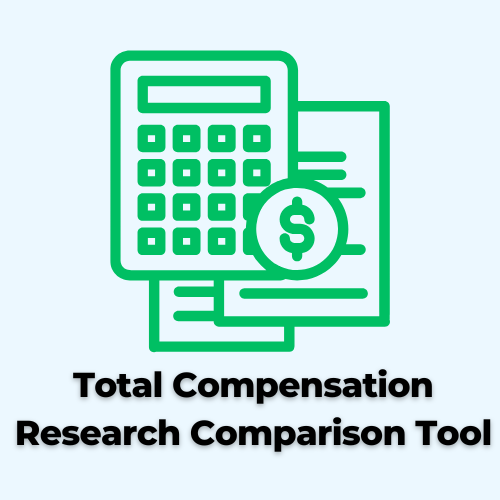
- Understand Total Compensation – Use our tool to break down and calculate the compensation in your job offer.
- Research & Compare Offers – Organize your compensation research and determine the right counter amount.
- Get Here
2) Complete Due Diligence on an Oracle Job Offer Letter by Asking the Right Questions
Once you’ve carefully reviewed your Oracle offer letter, your next step should be to start asking questions about it to the recruiting team.
This accomplishes two important things:
It helps you learn more about your specific offer/gives you clarity on things you may have been unsure about.
It shows the recruiting team how much you value the opportunity and how seriously you are considering an Oracle career.
Even if you feel like you’re not unsure about anything, asking questions will still provide you with important insights and data points you’ll need to develop an effective Oracle counteroffer.
We recommend you start asking questions within 24-48 hours of receiving an official offer. This shows the Oracle recruiter that you’re actively interested in understanding and pursuing the role more. If you’re not sure what to ask, you can use our list of Strategic Questions to Build Negotiation Leverage.
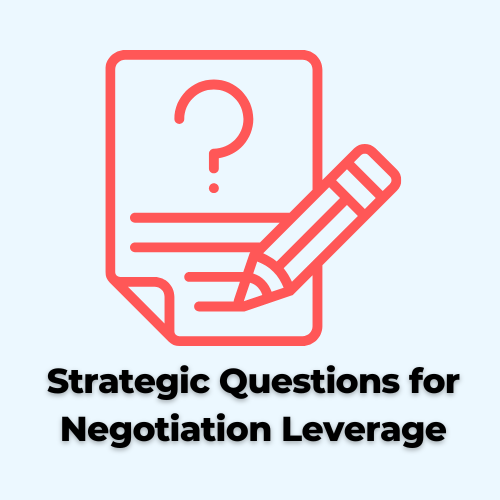
- Build Negotiation Leverage – Ask the right questions to strengthen your negotiation before sending a counter.
- Email & Phone Scripts – Get our list of questions to ask and what to say if the recruiter wants to chat through them.
- Get Here
3) Research to Identify What Your Oracle Compensation Should Look Like
As we explained earlier in the article, Oracle compensation structures are generally dependent on predetermined salary ranges for each specific role.
To better understand the strength of your current offer and how much you should counter for, we recommend you spend some time researching what the pay range for your specific role is.
When conducting this research, it’s critical to keep in mind that these salary ranges will vary based on the role, its level, and even its location—including whether it’s in person or remote. All of these factors need to be taken into account if you want to uncover the most accurate information. For example, you wouldn’t want to come to the table with data on a software engineer salary Oracle if your offer was actually for a senior software engineer salary Oracle.
So where can you find this pay data information?
Our salary negotiation course walks through how to do this in detail, but typically sites like Comparably and Glassdoor can provide helpful insights into salaries and other compensation components at Oracle. Always keep in mind that the publicly recorded pay ranges you see on these sites may not reflect Oracle compensation correctly, especially given changes in compensation from year to year (i.e., if you see Oracle Levels fyi boasting high total comp it might be due to equity appreciation and not what they typically offer a new hire). Evaluating data from multiple sites and using our salary negotiation templates should help you come up with the most accurate information.
After conducting your research, our recommendation is to aim for the mid-to-top end of the Oracle salary range you identified while negotiating your Oracle job offer. You can also download our Total Compensation Research Comparison Tool to help you with your Oracle compensation research.

- Understand Total Compensation – Use our tool to break down and calculate the compensation in your job offer.
- Research & Compare Offers – Organize your compensation research and determine the right counter amount.
- Get Here
4) Send an Oracle Counteroffer to the Recruiter
It’s finally time to develop an effective Oracle counteroffer and present it to the recruiter. By following steps 1-3, you should have all the insights and information you need to highlight what to advocate on for competitive compensation.
When you share your Oracle counteroffer with the recruiter, make sure to reference the research you’ve conducted and the pay data insights you’ve gathered. Respectfully communicate how the benefits in your initial offer differ from other companies and/or your current role.
Rather than calling the recruiter with your Oracle counter, we recommend presenting your Oracle counteroffer by email as it:
Ensures everything is in writing
Minimizes the risk of you going off topic
Gives the Oracle recruiter something tangible (and accurate) to share with the hiring team
Throughout this Oracle counteroffer process, make sure to be kind and professional. Since you’re not an Oracle employee yet, this is your opportunity to showcase what you’d be like to work with once a member of their team.
You can also check out our Salary Negotiation Counteroffer Drafts for examples if you need help or guidance formulating a strong and effective Oracle counteroffer.

- Proven Counteroffer Templates – Built from hundreds of successful job offer negotiations.
- Negotiate with Confidence – Remove the guesswork with our professionally crafted counteroffers.
- Get Here
5) Handle Any Objections on Your Oracle Counteroffer From the Oracle Recruiter
While you might hear back immediately from the recruiting team with an updated offer, you should prepare yourself for some pushback.
The most probable scenario is that the Oracle recruiter will return with a list of excuses as to why the hiring team cannot make any adjustments to your Oracle compensation package. If this happens, don’t worry—it’s a very normal part of the process.
If you do receive a “No” to your Oracle counteroffer, begin by respectfully acknowledging their limitations, but then reiterate your ask and desire for them to share your counteroffer with the Oracle compensation team. You should still stick to this approach even if they insist their team will simply say no. Our Objection Handling Scripts are designed for these situations when you encounter push back.
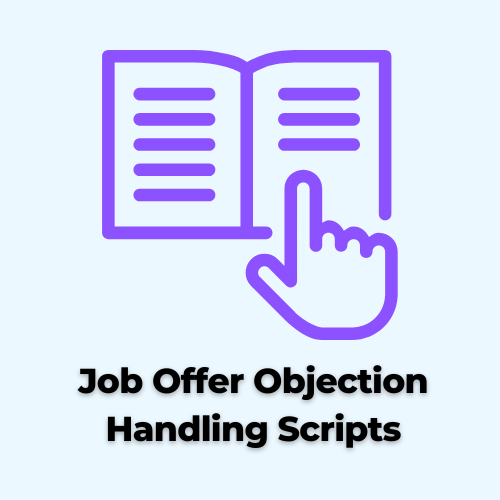
- Overcome Recruiter Pushback – Proven scripts to handle pushback and keep your salary negotiation on track.
- Communicate Effectively – Use expert responses to get recruiters to advocate for you with the compensation team.
- Get Here
Eventually, the recruiter should agree to take your Oracle counteroffer back to their team and once they do, they should come back with an improved offer.
If the updated offer falls within the Oracle salary ranges you researched and meets your personal and professional needs, you should be ready to send over an official offer acceptance email. Congratulations on a successful Oracle salary negotiation!
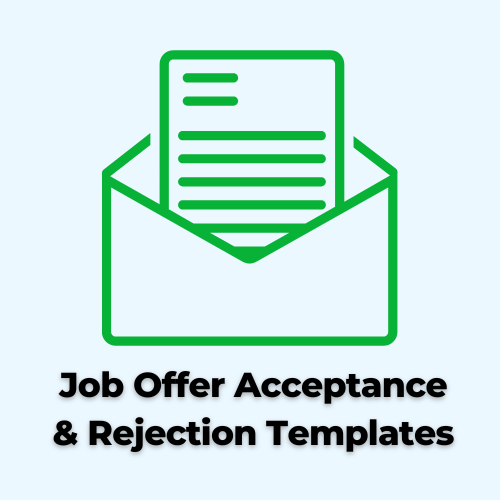
- Accept or Decline – Expert crafted job offer acceptance email and rejection email templates to share your decision.
- Professional & Genuine Tone – These help you communicate in a professional manner regardless of what you decide.
- Get Here
Negotiation Mistakes to Avoid During an Oracle Salary Negotiation
Before we wrap up, we want to leave you with a few additional helpful tips for negotiating a job offer with Oracle. Instead of rehashing what you should do during your Oracle negotiation, we are going to share a few things you shouldn’t do during your Oracle salary negotiation.
Check out this list of top Oracle salary negotiation mistakes you should try your best to avoid:
Avoid Sharing Oracle Salary Expectations Before You Get an Oracle Job Offer
You’ve heard this multiple times throughout this guide, but it’s so important that it’s worth repeating again: do not share your salary expectations before you get an official Oracle job offer.
The Oracle recruiters will try their best to uncover your salary expectations during the Oracle interview process. However, in almost all cases, sharing your Oracle salary expectations before you have an offer in hand can actually make it more challenging to receive a better compensation package.
Here’s how this could play out practically: Imagine you share a lower Oracle director salary expectation with the recruiter than what they could offer. They will now be incentivized to offer you that lower compensation or down level you. Alternatively, if you answer with a number higher than what they are able to realistically offer for an Oracle director salary, they could become disinterested and decide to go with a different candidate. The same goes for any role—whether it’s an Oracle vice president salary, Oracle data scientist salary, Oracle TPM salary, etc.
We understand that not giving into the recruiter’s questioning can be a challenge, which is why we’ve developed Salary Expectations Scripts for you to use. Ultimately, be prepared for Oracle recruiters to try to convince you that knowing your compensation expectations can help them find a deal that works well for both you and their team. While at first that might sound like a reasonable ask, don’t forget that they are ultimately working for Oracle, not you.
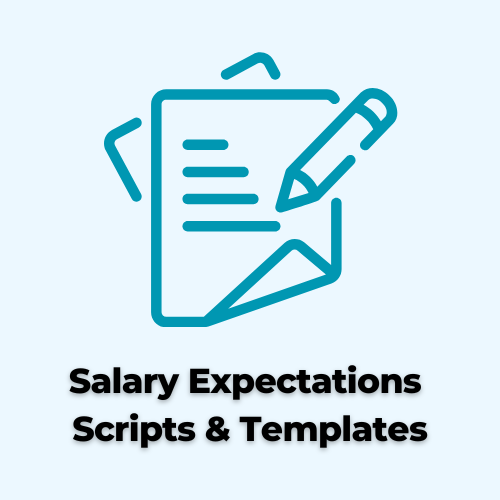
- Salary Expectation Responses – Scripts to overcome recruiter salary expectation discussions and pre offer calls.
- Avoid Lowballing Yourself – These call scripts and email templates will help you get a competitive offer.
- Get Here
On a very practical level, it also doesn’t make much sense to go over your salary expectations before you learn more about the specific role, its benefits, and whether an Oracle career feels like a good fit for you.
Don't Be Afraid of an Oracle Salary Negotiation
We’ve seen it happen plenty of times: job seekers end up not negotiating out of misplaced fear—especially if they’ve never negotiated before.
However, you can rest assured: you’re not going to lose out on the Oracle offer letter because of an attempted Oracle salary negotiation. We’ve helped facilitate hundreds of successful tech salary negotiations, and we’ve never seen a company take back a job offer because a candidate tried to negotiate.
Regardless of the role level—whether it’s an Oracle product manager salary, Oracle VP salary, or an Oracle engineering manager salary—you should negotiate an Oracle job offer.
Don’t let false salary negotiation myths keep you from advocating for competitive compensation during an Oracle salary negotiation.
Be Realistic by Doing Your Research When Evaluating Oracle Careers
It’s true that Oracle careers pay well. With that being said, you never want to push for unreasonable compensation.
That’s why taking the time to understand each element of your Oracle salary package and researching the pay ranges for your specific role is so essential. With the right data and insights, you should be able to come up with an appropriate and effective Oracle counteroffer that results in an improved compensation package.
Oracle Salary Negotiation Coaching & Tools
Increasing Oracle compensation requires a deep understanding of the company’s compensation philosophy and the right salary negotiation strategy. Our expert Salary Negotiation Coaching will help you navigate the Oracle salary negotiation process and secure the top end of the pay band.
Or leverage our Salary Negotiation Courses and Salary Negotiation Scripts.
 Job Offer Negotiation Course
Job Offer Negotiation Course
- Get our job offer negotiation strategies, templates, scripts, and guidance.
- Access our step-by-step lessons, compensation research guides, and tools.
- Access Now
 Raise Negotiation Course
Raise Negotiation Course
- Get our raise negotiation strategies, templates, scripts, and guidance.
- Access our step-by-step lessons, compensation research guides, and tools.
- Access Now



